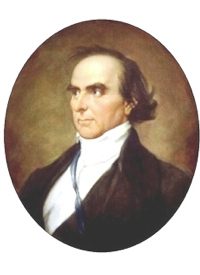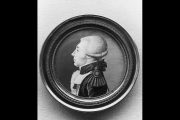
On this day 161 years ago, famed orator Daniel Webster delivered one of the most memorable speeches of his remarkable career. Standing to address the Senate in support of the Compromise of 1850, the congressional effort led by Henry Clay and Stephen Douglas to resolve the issues propelling the United States toward a civil war, Daniel Webster delivered a three-and-a-half hour address wherein he described himself “not as a Massachusetts man, nor as a Northern man but as an American….”
Of itself, such a declaration would not have been controversial, however, implicit in Webster’s self-characterization was his tacit endorsement of the Fugitive Slave Act of 1850 (part of the bundle of compromises included in the so-called Compromise of 1850).
The law in question mandated that all agents and officials of the federal government arrest alleged runaway slaves. Failure to comply with this provision of the law could result in a fine of $1,000. Probable cause for such an arrest could be based on an affidavit of ownership sworn to by a slave owner.
There was significant impetus for law enforcement officers to obey the law as any officer who captured a suspected runaway slave could apply for an applicable bonus.
Upon his arrest, the suspected slave was denied a jury trial and could not testify in his own defense.
As a result of this procedural aspect of the law, many free black men were conscripted into slavery as their right to defend themselves against the accusation was severely curtailed if not outright denied.
Another provision of the law punished any person aiding a runaway slave with up to six months’ imprisonment and a $1,000 fine.
Despite its stringent provisions, the law was regularly “nullified” by juries across the North who acquitted men accused of violating the Fugitive Slave Act of 1850. Jury nullification was especially rampant across Massachusetts, Webster’s home state. It was here that Webster was more especially condemned for his “Seventh of March” discourse and its implications.
As a result of his speech in favor of the Compromise and the Fugitive Slave Act included therein, Daniel Webster was excoriated by those abolitionists who considered the entire Compromise, and particularly the Fugitive Slave Act, reprehensible and indefensible.
One such detractor, the Reverend Theodore Parker proclaimed that, “No living man has done so much to debauch the conscience of the nation.” Horace Mann piled on by describing Webster as, “a fallen star! Lucifer descending from Heaven!” The animosity among his abolitionist constituency spread and calumny of unbearable degree rained down on Daniel Webster.
In fact, Webster never recovered politically from the “Seventh of March” fallout. The reaction from the New England press was so severe and so persuasive that not a single congressman or senator from New England would go on record as supporting Webster’s stance.
Indeed, so intense was the pincering pressure exerted by his party above and by his constituents below, that Webster resigned from the Senate in 1850. Thereupon, he resumed his former post as Secretary of State in the Millard Fillmore administration.
Unrepentant, as Secretary of State, Daniel Webster continued acting as a leading proponent of the Compromise of 1850 and the Fugitive Slave Act. So sincere was his belief, in fact, that Webster was among the leaders of those officials who prosecuted men accused of trying to rescue a suspected runaway slave before he could be returned to his owner. Unsurprisingly, none of those charged with the attempted rescue were found guilty of any crime.
In a final effort to restore his name and regain his popularity, Webster sought the nomination for president in 1852. Predictably, the Whig Party of which he had been such a powerful and prominent member, refused to nominate him as a candidate for the presidential election of that year.
The elegantly crafted opening paragraph of Daniel Webster’s renowned and controversial “Seventh of March” speech is reproduced below:
Mr. President, – I wish to speak to-day, not as a Massachusetts man, nor as a Northern man, but as an American, and a member of the Senate of the United States. It is fortunate that there is a Senate of the United States; a body not yet moved from its propriety, not lost to a just sense of its own dignity and its own high responsibilities, and a body to which the country looks, with confidence, for wise, moderate, patriotic, and healing counsels. It is not to be denied that we live in the midst of strong agitations, and are surrounded by very considerable dangers to our institutions and our government. The imprisoned winds are let loose. The East, the North, and the stormy South combine to throw the whole sea into commotion, to toss its billows to the skies, and disclose its profoundest depths. I do not affect to regard myself, Mr. President, as holding, or as fit to hold, the helm in this combat with the political elements; but I have a duty to perform, and I mean to perform it with fidelity, not without a sense of existing dangers, but not without hope. I have a part to act, not for my own security or safety, for I am looking out for no fragment upon which to float away from the wreck, if wreck there must be, but for the good of the whole, and the preservation of all; and there is that which will keep me to my duty during this struggle, whether the sun and the stars shall appear, or shall not appear for many days. I speak to-day for the preservation of the Union. “Hear me for my cause.” I speak to-day, out of a solicitous and anxious heart for the restoration to the country of that quiet and harmonious harmony which make the blessings of this Union so rich, and so dear to us all. These are the topics I propose to myself to discuss; these are the motives, and the sole motives, that influence me in the wish to communicate my opinions to the Senate and the country; and if I can do any thing, however little, for the promotion of these ends, I shall have accomplished all that I expect….



